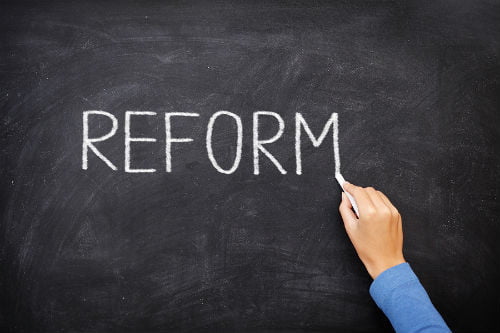Starting today, big changes will impact you and your credit cards, thanks to the credit card reform legislation that President Obama signed into law earlier this year.
The goal of credit card reform was to stop or prevent unfair or deceptive lending practices by banks and credit card issuers.
The two provisions of the legislation that kick in today are:
- Banks and credit card issuers will now be required to give you 45-days notice before an interest rate hike. (Currently, they only have to give you 15-days notice)
- NOTE: If you reject a rate hike, you will have the right to pay off the debt over 5 years at your original rate)
- Credit card companies must give you more time to pay your bills because banks must now mail your bills 21 days before due date; not 14 days, as is currently the case.
Even bigger changes will come in February 2010, when you’ll see a host of other benefits. For example, in the future, the credit card reform law:
- bans retroactive interest rate increases (unless you’re 60 days or more late paying your credit card)
- restricts default rates to 6 months if customers pay on time
- outlaws universal default (although this is officially banned starting Feb. 2010, but many banks have already stopped this)
- mandates that payments be first applied to the highest rate balances (this will really hit bank profits; but again, it’s not mandatory until Feb. 2010)
- requires anyone under 21 to have a co-signer to get a credit card
- forbids credit cards from being issued to people under 18
- sets rules for how quickly banks must apply payments
- prohibits fees on payments made via phone and the Internet
- puts a 5-year lifespan on gift cards and eliminate their hidden fees
- requires better disclosure of payment due dates and late payment penalties
- prevents issuers from establishing early morning payment deadline (no due dates before 5 p.m. on any business day; starting in Feb. 2010)
Here’s my take on the new law:
The downsides – or potential risks – to consumers include:
- limited or no grace periods
- more credit cards with annual fees
- stricter credit practices (harder to qualify for cards, higher rates, slashed credit lines or outright closing of accounts)
- creative fees or questionable practices until 2010
- more junk mail in your mailbox (because banks will try to make up for lost profits by attracting certain new customers.)
Overall, I think credit card reform is a huge win for consumers.
I don’t buy the banking industry’s contention that it will be unjustifiably hurt by the changes. Sure, they’ll have diminished profits. But that’s after having reaped many billions of dollars in profits based on questionable fees and unfair practices.
Nor do I accept the industry’s claims that “low income” people will be the most to suffer, because of reduced access to credit.
Only time will tell, but my best guess is that banks will tighten up the rules, as they’ve been doing lately, and hit customers with more fees in the short run …
Banks compete
But in the long run, banks will become more competitive with one another, and try to stand out to consumers by dropping those fees, etc.
And when one bank stops imposing annual fees, or quits nickel and diming credit card customers, and that starts to win over clients, then the rest of the industry will take notice and try to do the same.
Lastly, it’s important to note that banks still exert a lot of power. For example, they can close your account any time they want, without notice and for any reason.
And they can also still lower your credit line without advance notice — providing they don’t impose any fees or hike your interest rate.
So credit card reform is essentially a way to create a more level playing field, and to bring more fairness into credit card lending and marketing practices.











Comments are closed.